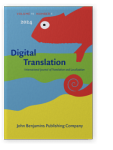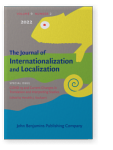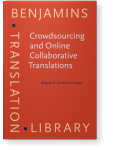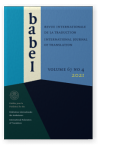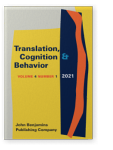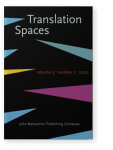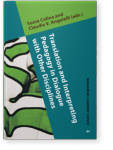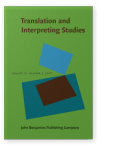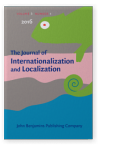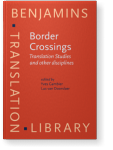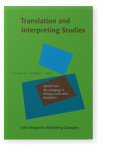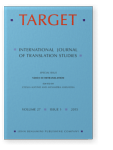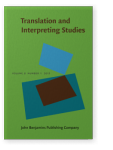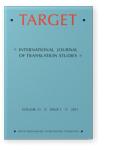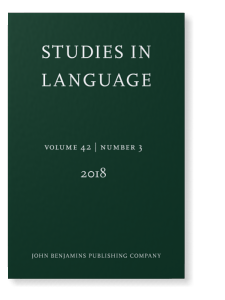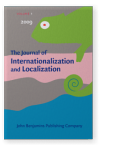Miguel A. Jiménez-Crespo
List of John Benjamins publications for which Miguel A. Jiménez-Crespo plays a role.
Journals
ISSN 2032-6904 | E-ISSN 2032-6912
Title
Crowdsourcing and Online Collaborative Translations: Expanding the limits of Translation Studies
Miguel A. Jiménez-Crespo
[Benjamins Translation Library, 131] 2017. xv, 304 pp.
Subjects Translation Studies
2023 Augmentation and translation crowdsourcing: Are collaborative translators’ minds truly “augmented”? Translation, Cognition & Behavior: Online-First Articles | Article
This paper critically discusses how crowdsourcing relate to the emergence of the so-called translation augmentation paradigm. As a broad generalization, these two technology-driven phenomena emerged as possible solutions to achieve better, more efficient or speedier solutions to complex problems… read more
2021 The impact of crowdsourcing and online collaboration in professional translation: Charting the future of translation? Babel 67:4, pp. 395–417 | Article
The emergence of crowdsourcing has opened up novel ways to initiate, produce and deliver translations in our digitally connected world. New practices and processes brought up by these phenomena have undeniably impacted different collectives with an interest in translation, such as language… read more
2021 Literal is not always easier: Literal and default translation, cognitive effort, and comparable corpora Translation, Cognition & Behavior 4:1, pp. 98–123 | Article
“Literal translation” is a popular construct in Translation Studies. Research from computational approaches has consistently shown that non-literal translations, i.e., renderings semantically and syntactically different or not close to the source text, are more difficult or effortful to produce… read more
2020 The “technological turn” in translation studies: Are we there yet? A transversal cross-disciplinary approach Translation Spaces 9:2, pp. 314–341 | Article
For over two decades, Translation Studies (TS) scholars have argued that the discipline is going through a ‘technological turn’. This paper critically questions whether TS has already completed this “paradigmatic” or “disciplinary turn,” “a clearly visible and striking” change of direction that… read more
2017 The Internet in translation education: Two decades later Translation and Interpreting Pedagogy in Dialogue with Other Disciplines, Colina, Sonia and Claudia V. Angelelli (eds.), pp. 31–54 | Article
Within the context of the global digital revolution, translation in professional settings cannot be understood without the Internet, as a communicative, documentary, and productivity tool (Cronin 2013; Jimenez-Crespo 2013). Similarly, translation training has been revolutionized by the wide range… read more
2017 Lexical variation, register and explicitation in medical translation: A comparable corpus study of medical terminology in US websites translated into Spanish Translation and Interpreting Studies 12:3, pp. 405–426 | Article
Differences in register, lexical use, syntactic shifts or determinologization strategies between source and target medical texts can produce usability or comprehensibility issues (Askehave and Zethsen 2000a; Tercedor and López 2012; Nisbeth Zethsen and Jensen 2012; Alarcón, López-Rodríguez, and… read more
2016 What is (not) web localization in translation studies: A prototype approach The Journal of Internationalization and Localization 3:1, pp. 38–60 | Article
In the midst of a shift from paper to digital texts, web localization represents one of the fastest growing sectors in the translation industry. In this paper, I will argue that Translation Studies (TS) has not devoted enough attention to this phenomenon, partly due to the lack of definition and… read more
2016 International business, marketing and translation studies: Impacting research into web localization Border Crossings: Translation Studies and other disciplines, Gambier, Yves and Luc van Doorslaer (eds.), pp. 245–262 | Article
This chapter delves into the different approaches to localization of websites
and the interdisciplinary links between two disciplines that have an interest
in the exploration of this phenomenon, translation studies and international
business and marketing. The chapter explores how the cultural,… read more
2015 The Internet in translation education: Two decades later T&I pedagogy in dialogue with other disciplines, Colina, Sonia and Claudia V. Angelelli (eds.), pp. 33–57 | Article
Within the context of the global digital revolution, translation in professional settings cannot be understood without the Internet, as a communicative, documentary, and productivity tool (Cronin 2013; Jimenez-Crespo 2013). Similarly, translation training has been revolutionized by the wide range… read more
2015 Dunne, Keiran J. & Elena S. Dunne, eds. 2011. Translation and Localization Management: The Art of the Possible Voice in Retranslation, Alvstad, Cecilia and Alexandra Assis Rosa (eds.), pp. 115–121 | Review
2013 Crowdsourcing, corpus use, and the search for translation naturalness: A comparable corpus study of Facebook and non-translated social networking sites Translation and Interpreting Studies 8:1, pp. 23–49 | Article
This paper argues that corpus use in translation and the Facebook non-professional crowdsourcing model both aim to create more natural-sounding translations. A number of studies on corpus use support this hypothesis, but, to date, there have been no empirical studies on whether crowdsourcing… read more
2011 The future of general tendencies in translation: Explicitation in web localization Target 23:1, pp. 3–25 | Article
Explicitation has long been considered a tendency in translation and has been empirically investigated by a number of scholars. This paper responds to Chesterman´s (2004a: 47) call to test explicitation phenomena on different translation modalities and types, and tests the explicitation hypothesis… read more
2010 The intersection of localization and translation: A corpus study of Spanish original and localized web forms Translation and Interpreting Studies 5:2, pp. 186–207 | Article
For over two decades, the localization industry has striven to produce non-culture-specific texts that can be easily localized into most languages. Nevertheless, contrastive studies have shown that certain features of texts can vary between source and target cultures, such as textual structure or… read more
2009 The evaluation of pragmatic and functionalist aspects in localization: towards a holistic approach to Quality Assurance The Journal of Internationalization and Localization 1, pp. 60–93 | Article
Current localization QA models are based on componential error-based approaches to quality evaluation. However, as it is more complex to objectively measure pragmatic issues than language or functionality problems, the communicative-pragmatic adequacy of the target text is normally ignored while… read more
